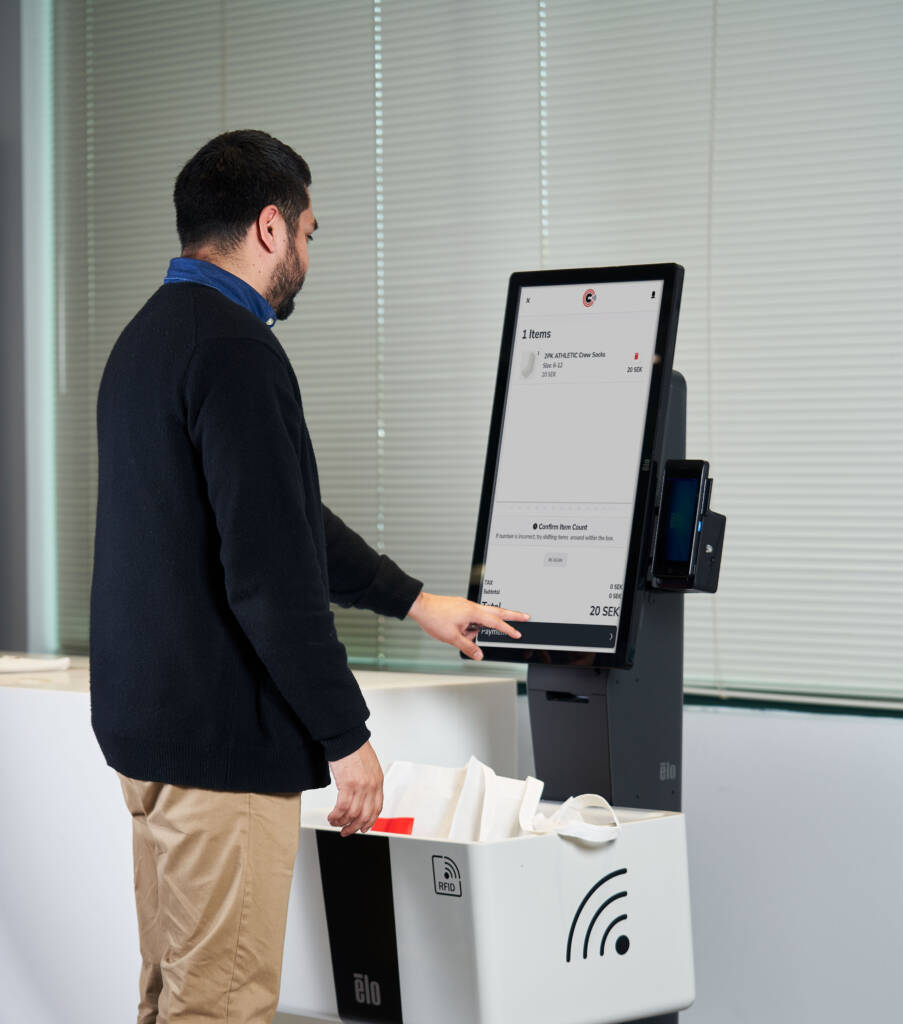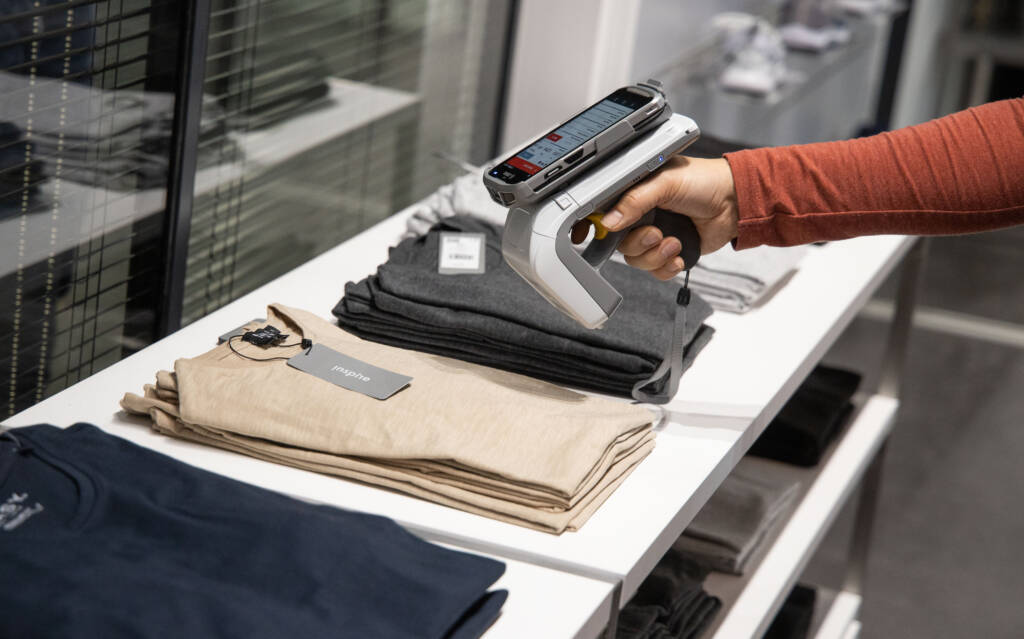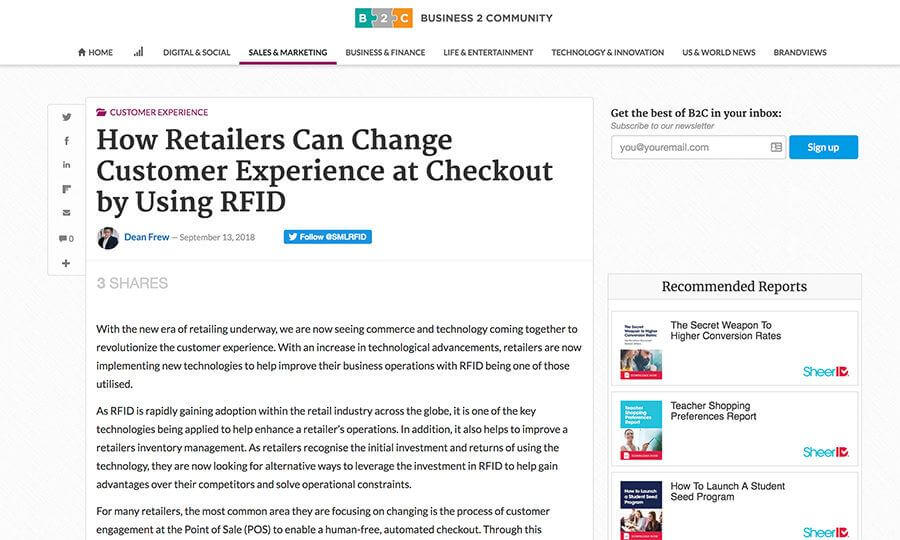Regulation in QSR: How RFID Solutions Can Help Businesses Thrive
Radio Frequency Identification (RFID) technology plays a crucial role in enabling quick-service restaurants to comply with regulations.
According to Statista, the quick-service restaurant (QSR) industry in the United States (US) is one of the most well-established in the world. Today, several US brands dominate globally in the fast-food business industry.
Consumer spending in the sector is on the rise. However, there are a number of challenges facing QSR businesses in today’s competitive market. Apart from meeting evolving consumer demands, they also need to ensure compliance with regulatory requirements. Additionally, with a significant amount of perishable stock, they need to remain on top of their inventory to avoid wastage. RFID technology can play an important role in helping QSR businesses to overcome these challenges and drive efficiency.
Key regulatory requirements in QSR: Why are they important?
The Food Safety Modernization Act (FSMA) is a primary regulatory requirement for QSR businesses in the US. It aims to prevent foodborne illnesses, necessitating QSR businesses to adhere to requirements and standards related to hazard analysis, preventive controls, and supply chain transparency.
To comply with FSMA’s requirements for additional traceability records, businesses, that manufacture, process, pack, or hold foods included on the food traceability list (FTL), must maintain records containing key data elements (KDEs) associated with specific critical tracking events (CTEs). The FSMA deadline for all persons subject to the recordkeeping requirements is Tuesday, January 20, 2026.
The new requirements will allow faster identification and rapid removal of potentially contaminated food from the market, resulting in fewer foodborne illnesses and/or deaths.
While the US has these regulations in place, various authorities worldwide have diverse regulatory frameworks according to their geographical locations to achieve similar aims – increased food hygiene and safety, sustainable processes, and enhanced nutritional transparency for consumers. These requirements are crucial, not only from a regulatory perspective but also from the viewpoint of consumer safety. QSRs can implement RFID technology to continually meet regulatory standards and improve overall operational efficiency.
RFID solutions for QSR regulations
QSRs can implement RFID technology to ensure they adhere to regulations related to transparency, labeling, and sustainability. RFID can deliver real-time traceability capabilities for QSRs, allowing them to track their inventory and meet the supply chain transparency requirements of FSMA.
Using Clarity® Food by SML RFID, QSRs can gain real-time transparency in the food supply chain, achieving 93-99% accuracy. Leveraging RFID technology, fast-food restaurants can also streamline the process of updating menu labels with accurate nutritional information. This can help them comply with regulations mandating clear and precise menu labeling, fostering transparency and meeting customer expectations.
Through RFID, QSR businesses can automate the tracking of ingredients and their presence in menu items, facilitating efficient and accurate allergen management. This allows QSRs to seamlessly comply with allergen labeling requirements, ensuring customer safety and satisfaction.
Wider benefits of RFID in QSR
While RFID enables QSRs to comply with regulations, it can also help them drive profitability and achieve a significant return on investment (ROI) on their technology deployments.
Using RFID’s real-time inventory tracking and optimal accuracy capabilities, QSRs can significantly improve their overall operational efficiency. From inventory management to order fulfilment, RFID can help QSRs streamline their entire supply chain operations seamlessly. RFID enables QSRs to automate tracking, reduce labor costs and minimize manual tasks for inventory, orders, and quality control.
RFID can also help QSRs to reduce waste and drive cost savings. Fast food businesses use several products and ingredients that do not have a long shelf life. To reduce their wastage, products with short expiry dates must be used first. RFID can track expiration dates for a First-Expired-First-Out (FEFO) strategy, prioritizing short-shelf-life products, reducing waste, and minimizing costs.
Ultimately, by optimizing food traceability, streamlining waste management, ensuring real-time visibility, and maintaining accurate best-before dates, QSRs can comply with regulations and operate at peak performance, leading to increased profitability.
In a regulatory environment that demands precision, transparency, and adherence to standards, RFID can prove to be a transformative solution for fast food chains. By integrating RFID technology, QSR businesses can meet compliance and position themselves for sustained success in a competitive market. Embracing RFID is not just a response to regulations; it’s a strategic investment in the future of QSR operations that can deliver optimal ROI.
Get in touch with our RFID experts today to learn how Clarity® Food is used in restaurants and how your QSR business can benefit from RFID solutions.










